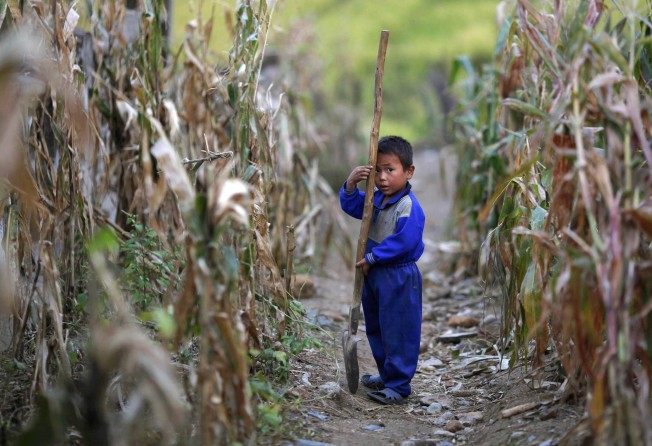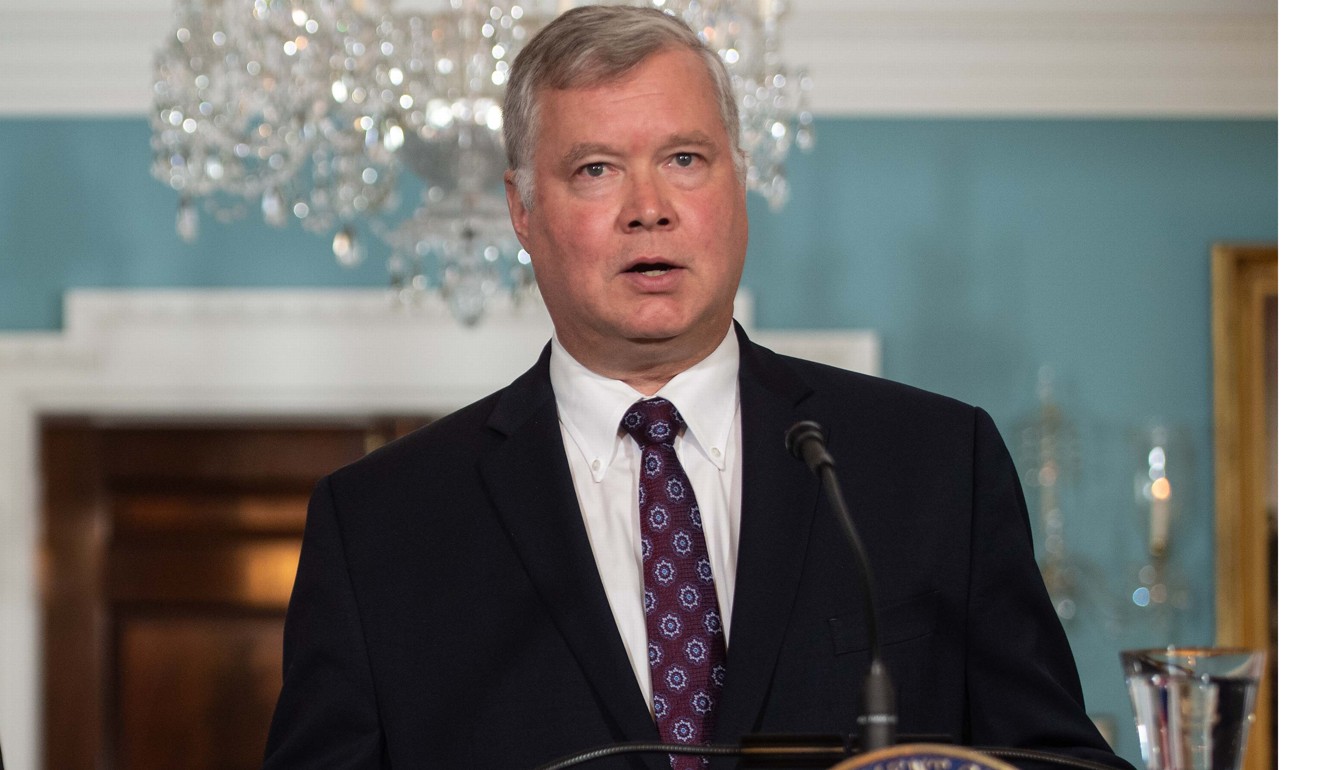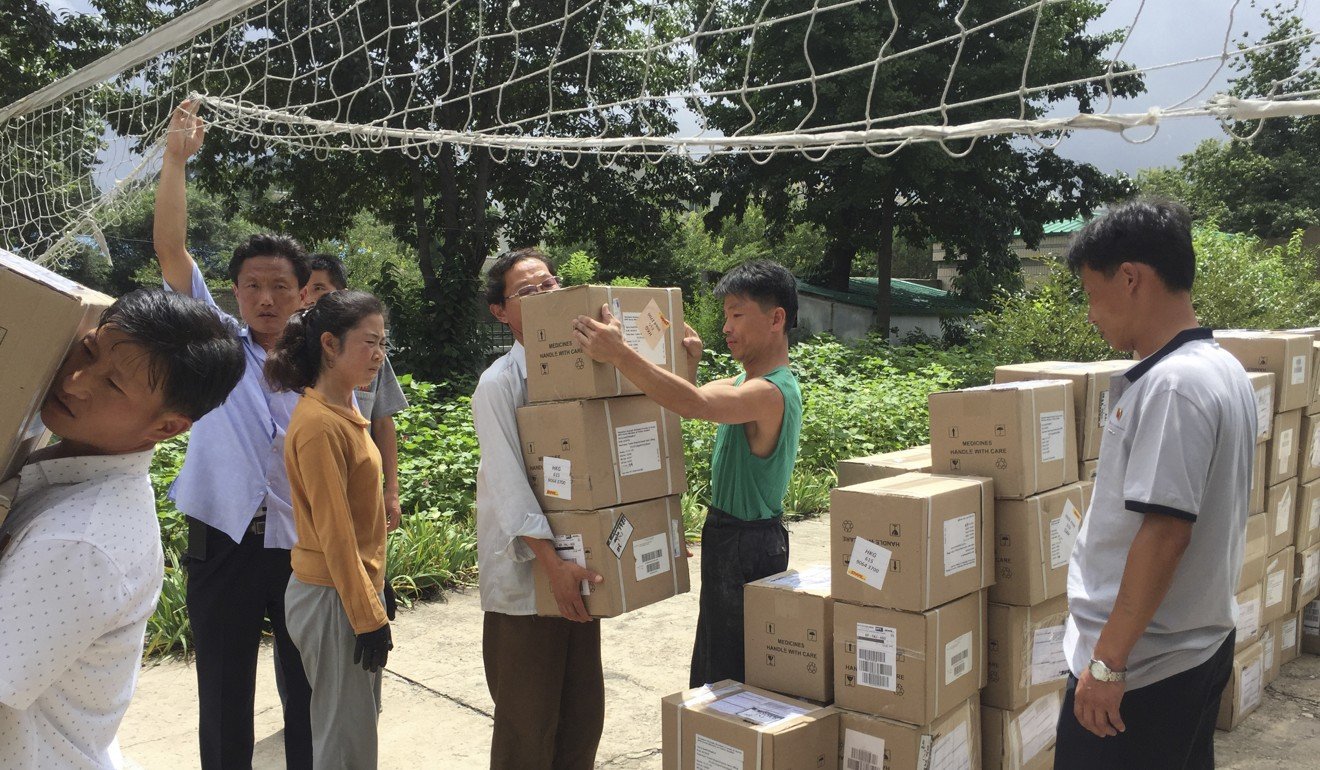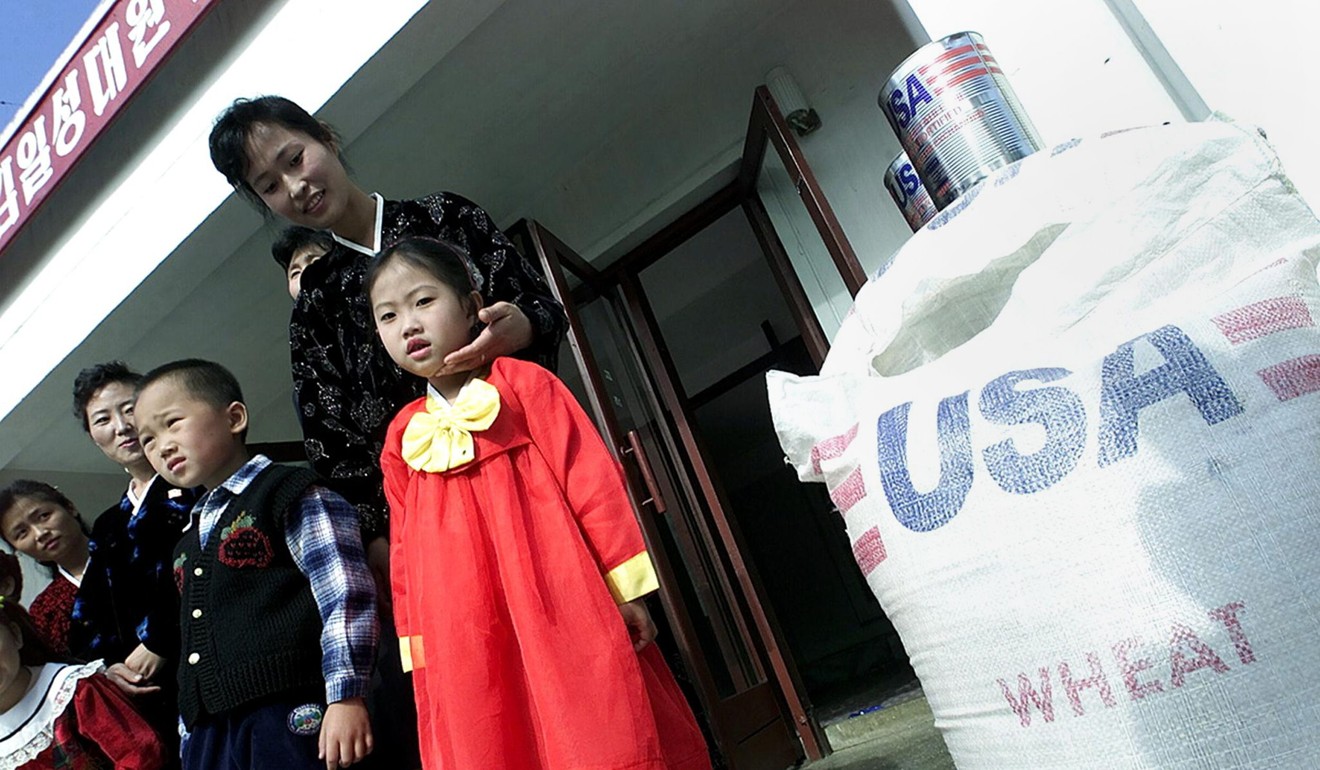Will the US give new hope for humanitarian aid to North Korea?
- The UN says up to 10 million people in the impoverished nation are in need of assistance, many of those being malnourished children
- Aid organisation officials are keen to get back to work in the country amid reports the UN sanctions committee had approved ‘almost no projects’ in the past four months

Humanitarian organisations hope to resume stalled projects in North Korea in 2019 as the United States indicates it may loosen a travel ban and sanctions that have hampered work in the country.
Despite an official exemption for humanitarian activities, aid workers have been repeatedly refused permission to travel and send basic sanitation and medical equipment to the impoverished nation.
In 2018, charities including Save the Children and Global Fund scaled back or ceased operations in North Korea, where the United Nations says more than 10 million people require humanitarian assistance.
One senior aid official, who spoke on condition of anonymity, said the UN Security Council’s North Korea sanctions committee had approved “almost no projects” in the past four months because the US was narrowly defining humanitarian need in relation to pandemics.
“We want to provide, for instance, water taps so we can lay piping and give access to clean water to rural clinics, poor people in communities as well as schools and other public venues,” the official said. “We need to import the taps and they have to go through the sanctions committee.”
Amid growing frustration within humanitarian circles, US Special Representative for North Korea Steve Biegun said during a trip to South Korea earlier this month that the sanctions and travel ban would be reviewed in the new year.
Biegun said he would meet humanitarian representatives early in 2019 to “discuss how we can better ensure the delivery of appropriate assistance”.
Richard Blewitt, permanent observer of the International Federation of Red Cross and Red Crescent Societies to the UN, said he hoped restrictions would be eased.

“What it will mean is we will be able to continue our programme in rural North Korea, providing very, very critical water and sanitation and health inputs in a way that protects lives and secures people away from the threat of pandemics,” he said.
“The overall country situation calls for more assistance, not less, and we look forward to being able to get going again with a renewed vigour to make sure our programmes remain on track.”
Hye-min Lee, a spokeswoman for the Eugene Bell Foundation, which focuses on treating tuberculosis in rural North Korea, described Washington’s recent signals as “hopeful news to us” but declined to elaborate.
Kee Park, who leads projects in North Korea for the Korean American Medical Association, said he was looking forward to resuming collaboration with the country’s medical authorities, which has stalled since May.

“They have highly technically trained doctors but their resources are limited,” Park said. “So you have surgeons who are very skilful but they are unable to do a lot of the procedures because they might be missing a very key piece of equipment – something like that.
“So what we are able to do is partner with the North Korean doctors, identify areas in their resource setting what kind of solutions would make sense.”
Park said the cumbersome approval process for getting exempt from the sanctions and travel ban had severely impacted their work.
“The number of people who are willing to go through this process has gone down significantly,” he said.
North Korea is under heavy US and UN sanctions over its illicit nuclear and missile programmes, which have been blamed for threatening international security and directing scarce resources away from the population’s daily needs.

Last year, Washington banned travel by its citizens to the country after the death of college student Otto Warmbier, who was detained for 17 months by authorities before being released in a vegetative state. He died upon returning to the US.
In January, Care International put North Korea at the top of its list of humanitarian crises that received the least international coverage. One in five North Korean children are malnourished, according to UN estimates. In 2018, the UN’s World Food Programme received only about half of the US$52 million in donations it said was needed to address hunger in the country.